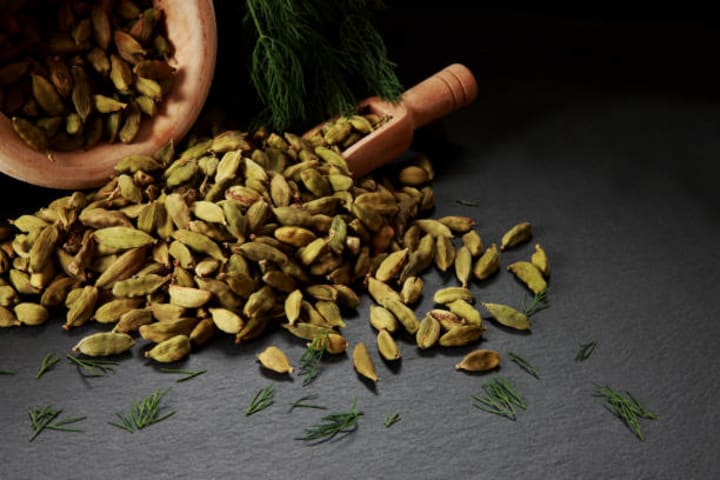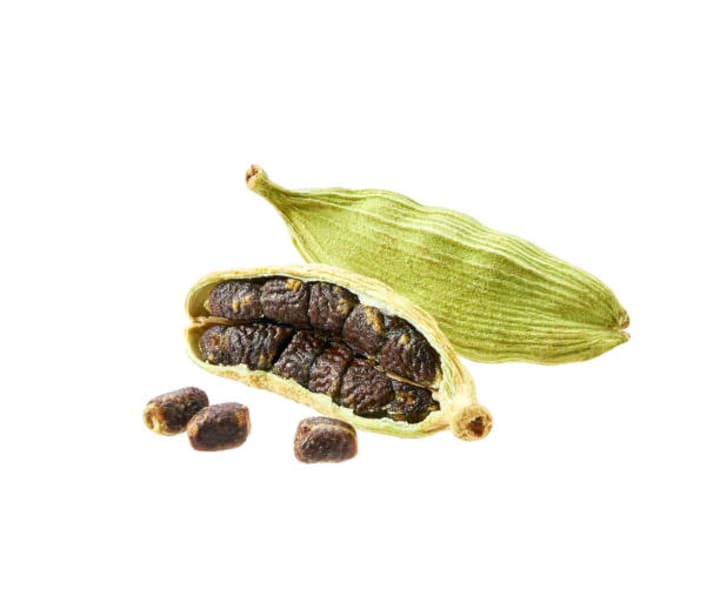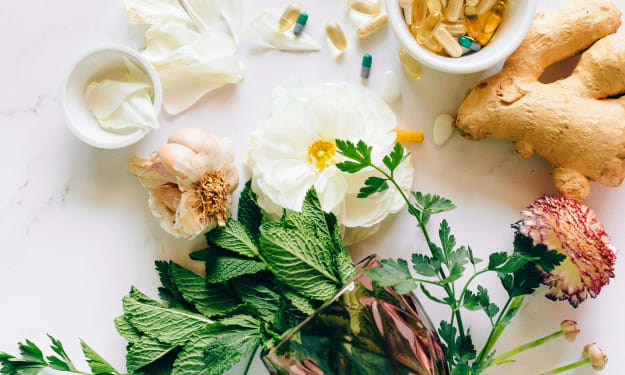
Cardamom Health Benefits.

Cardamom is a spice that is widely used in cooking and traditional medicine. It has been found to have numerous health benefits, including:
- Digestive aid: Cardamom can help to relieve digestive issues such as bloating, gas, constipation, and stomach cramps.
- Anti-inflammatory properties: Cardamom contains compounds that have anti-inflammatory properties, which can help to reduce inflammation in the body.
- Blood sugar control: Studies have shown that cardamom may help to lower blood sugar levels in people with diabetes.
- Antioxidant activity: Cardamom contains antioxidants that help to protect the body against oxidative stress, which can lead to chronic diseases.
- Oral health: Cardamom has antimicrobial properties that can help to prevent cavities and gum disease.
- Respiratory health: Cardamom has been used traditionally to treat respiratory issues such as asthma and bronchitis.
- Mood and stress relief: The aroma of cardamom has been found to have calming and mood-boosting effects.
- Digestive Health: Cardamom has been traditionally used to aid digestion and reduce flatulence. Preliminary studies suggest that cardamom may have gastroprotective effects and could help alleviate symptoms of conditions such as acid reflux, stomach ulcers, and irritable bowel syndrome (IBS).
- Antioxidant Properties: Cardamom contains compounds with antioxidant properties, which can help protect cells from damage caused by free radicals. Antioxidants may help reduce the risk of chronic diseases such as heart disease, cancer, and diabetes.
- Anti-inflammatory Properties: Some studies suggest that cardamom may have anti-inflammatory effects. Inflammation is a normal immune response, but chronic inflammation can contribute to the development of several chronic diseases. Cardamom may help reduce inflammation and promote overall health.
Overall, cardamom is a nutritious spice that can be incorporated into a healthy diet to provide numerous health benefits. However, it is important to note that excessive consumption of cardamom may have adverse effects, especially for people with certain medical conditions. As always, it is best to consult with a healthcare professional before making any significant changes to your diet or lifestyle.

Cardamom Side Effects
Cardamom is generally considered safe when used in small to moderate amounts as a spice in food. However, like any other spice or herb, it may cause side effects in some people, especially when consumed in large amounts or taken in medicinal doses. Here are some potential side effects of cardamom:
- Allergic reactions: Some people may be allergic to cardamom and experience symptoms such as skin rash, hives, itching, swelling of the face, tongue, or throat, difficulty breathing, or gastrointestinal upset.
- Gastrointestinal problems: Cardamom can cause gastrointestinal problems in some people, especially when taken in high doses or in supplement form. It may cause stomach upset, diarrhea, or abdominal pain.
- Interference with medications: Cardamom may interact with certain medications, including blood-thinning drugs, antacids, and antibiotics. It may also increase the absorption of some drugs, leading to an increased risk of side effects.
- Pregnancy and breastfeeding: Cardamom is likely safe when used in small amounts as a spice in food during pregnancy and breastfeeding. However, there is not enough reliable information to know if it is safe to take cardamom in medicinal doses during pregnancy and breastfeeding.
- Blood pressure and heart rate: Cardamom may cause changes in blood pressure and heart rate in some people, especially when taken in high doses.
- Drug interactions: Cardamom may interact with certain medications, including blood thinners, and antacids. Consult with a doctor before consuming cardamom if you are taking any medication.
- Respiratory problems: Inhaling cardamom powder can cause respiratory problems in some individuals, particularly those with asthma or other respiratory conditions.
If you experience any unusual symptoms after consuming cardamom, you should stop using it immediately and consult your healthcare provider.
About the Creator
Enjoyed the story? Support the Creator.
Subscribe for free to receive all their stories in your feed. You could also pledge your support or give them a one-off tip, letting them know you appreciate their work.





Comments
Test is not accepting comments at the moment
Want to show your support? Send them a one-off tip.